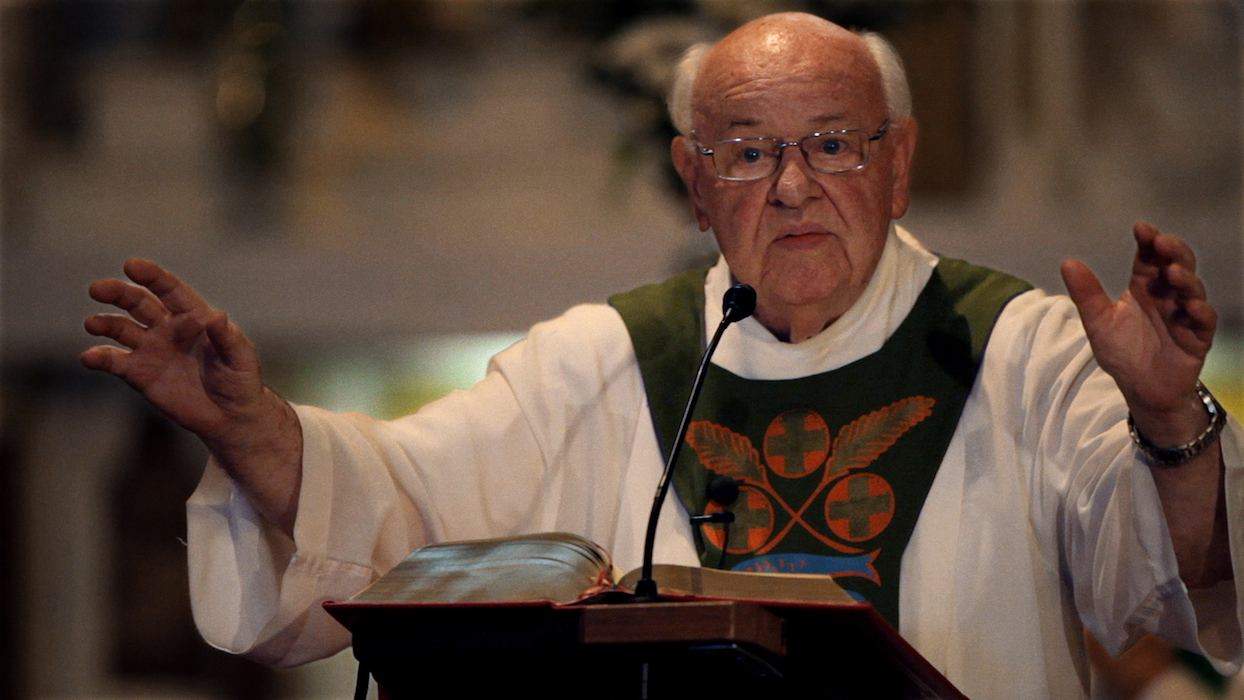In Bob We Trust
Quality time with every non-Catholic's favourite Catholic.
Overview
When John Safran was making his comedy/doco program John Safran vs God for SBS in 2004, his segment on Catholicism included a guest spot from South Melbourne Catholic Priest Father Bob Maguire. It was one of the show’s standout moments: the sardonic Father Bob playing off Safran’s nebbish persona like they’d just come off a 30-week Neil Simon run on Broadway. The relationship continued in television and radio, and Father Bob’s increasing media profile led to him to become every non-Catholic’s favourite Catholic: an outspoken priest who seemed unafraid of offending the Church with his opinions.
Because of Bob's notoriety, it's not unreasonable to approach this documentary with trepidation. Would the film simply be repeating what we already knew about Bob? Would it be more suitable for a crowd who’d never heard of him?
The film does play to an audience unfamiliar with Bob’s extraordinary personality, but even those who are fans of the man will find much to learn here. And it’s actually Safran who goes unexplained throughout the film. He appears sporadically most satisfactorily as 'Death' in a beachside callback to Ingmar Bergman’s The Seventh Seal without much comment. This is not necessarily a bad thing; enigmatic figures are an underrated tool for fostering audience intrigue.
But it's Father Bob who is the star of the show. Filmed over the period during which the Catholic Church was trying to forcibly eject him (deeming him "too old" at age 75), In Bob We Trust documents the opinions and work of a man who seems to understand the fundamental message of Christ better than many of his counterparts. Not only that, but he puts it into practice.
His well-fostered grumpy persona is the perfect conduit for what seems to be a genuine frustration at the Catholic Church's attitude towards women, gays, refugees, the poor, etc. He nearly explodes at the idea of having to explain to his superiors why he keeps spending money on the less fortunate.
Lynn-Maree Milburn again proves herself a masterful director, following her superb documentary Autoluminescent: Rowland S Howard in 2011. She confidently steps back when the scene demands it but isn’t afraid to ramp up the production values (jump cuts, non-diegetic music and anything that dares to threaten the film’s verisimilitude with artifice) when needed.
Father Bob continuously insists that he himself should not be the message, and the film’s central thesis largely bears this out: Bob is presenting to us the reason and the ideal of Catholicism, what it should be and what it could be. He does not particularly wish to be venerated, and the film respects that whilst slyly paying tribute to a man of extraordinary grace, intelligence, wit and compassion.





